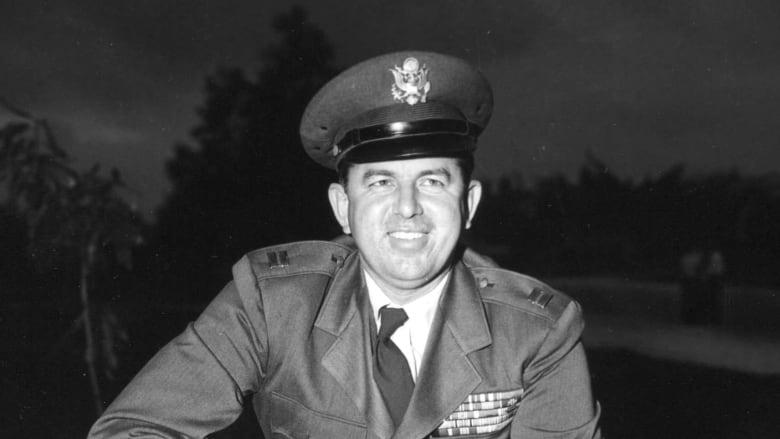'Perfectly happy sitting in on torture': Meet the U.S. spymaster from the Korean War

He was a seventh-grade dropout and had hardly any training, but somehow Donald Nichols became a master spy — changing the fate of the Korean War.
"The only training he had from the military was six weeks of spy school in Tokyo before he arrived in Korea," says Blaine Harden, a journalist who has focused on North Korea throughout his career.

Harden explores one of the least-known but most influential players of the Korean war in his newest book, King of Spies: The Dark Reign of America's Spymaster in Korea.
Nichols was instrumental in the choices the U.S. made to bomb and destroy major cities in North Korea during the Korean war, wiping out an estimated 20 per cent of the civilian population.
"He also developed this close relationship with Syngman Rhee [then South Korean president] so he could get any intelligence information the South Koreans had," Harden tells The Current's Anna Maria Tremonti.
After Nichols passed on the information to his generals, he was promoted.
"He went from master sergeant to major in about five months."
Nichols always wanted to go to Korea. When the war broke out, Harden says, he was "in the cat bird seat."

And when Nichols was displeased by people who worked for him, he would send them to their deaths.
"He pushed people out of boats. He pushed people out of airplanes. And he did all this with impunity. No one questioned him. It never was entered into his military service record," Harden tells Tremonti.
Nichols eventually lost support from the U.S. Air Force. He was considered to be too close to Rhee. Most of his record in the U.S. military archives is curiously missing.
"In 1957, the Air Force came for Donald Nichols. They put him in a straight jacket in the middle of the night and took him away," Harden explains.
"He had his own secret base near Seoul and they took him to a psychiatric ward of a military hospital in Japan where he went crazy with anger because he didn't understand why he had lost his job and was suddenly locked up."
Nichols was a man who knew too much, according to Harden. He endured months of electroshock therapy and was pumped full of Thorazine, an anti-psychotic medication.
Harden says, when Nichols could talk to his family, he said, "'The Air Force is trying to destroy my memory."
And then he was thrown out of the Air Force.
Listen to the full conversation to find out more about Nichols' legacy that lingers more than 60 years later.
This segment was produced by The Current's Kathleen Goldhar and Lara O'Brien.